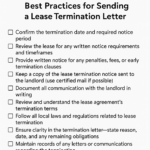Whether you’re a landlord or a tenant, having great communication is key. Open and effective tenant communication is the best method of attaining a stress-free living situation. Finding ideal tenants can be difficult, but it is up to both parties to maintain a positive connection.
When money, valuables, laws, and assets are involved, it’s critical to handle a long-term transactional partnership appropriately to minimize difficulties for everyone involved. It is your job as a landlord to treat your renters with respect. In return, you expect the same from them.
You can avoid potential problems over lease policies, rent payments, move-outs, and other common challenges with the proper tenant communication in place. With this in mind, we’ve compiled these tips on successfully communicating with tenants to make your rental agreements as stress-free as possible.
Communicating with Tenants About Policy Changes, Announcements, and More
There’s more to being a landlord than meets the eye. As a landlord, it can be helpful to understand the motivations of your renters. You need to have a sense of what is valuable for them, as well as what might be a burden.
Plan your communication accordingly. If you know that a change is going to cause stress for a renter, give plenty of advance warning and a chance for your tenants to ask questions.
For things like policy changes and announcements, many landlords opt to hang an announcement sheet in the entryway of the building or on the front door.
While giving your renters notice before a showing and informing them of a scheduled repair or service call may be required by law, it’s also a modest courtesy. Even if you own the building, it is occupied by the renter.
Make sure you don’t startle them with a surprise visit or a visit from contractors or repairmen. If an agent will be showing your house to other potential renters, it’s best practice to let them know as far in advance as you can.
One-on-One Tenant Communication
When you’re communicating with tenants in a one-on-one situation, treat them how you’d like to be treated. This can set a standard for a relationship of kindness and respect.
If you’re a landlord or property manager, always meet with clients in a public place and keep the door to your office open during meetings. If you have a meeting inside a tenant’s unit, it’s best to communicate and confirm the appointment in writing before visiting.
Emergency Tenant Communication
Property managers benefit from effective crisis communications before, during, and after a critical event. Having to communicate with tenants during an urgent moment can make you feel unprepared.
With that in mind, consider setting up emergency training classes or notification templates (including text, email, and voice communications) in preparation for a crisis.
When renters and property management employees experience a serious disaster, having these protocols in place can help to ensure that they are aware of the response procedures that apply to their floor or building.
Non-Emergency Communication
Daily communications can include things such as maintenance requests, answering questions about rent or fees, and just general chit-chat.
Tenants enjoy a landlord that is laid back and relatable. If a tenant is turning in rent in person, ask them about their day. Keep it lighthearted and respectful and you’ll often get the same courtesy in return.
Legal Notifications
Legal notices for landlords and tenants will vary from one state to the next, but it’s always important to get notifications of a legal nature in writing.
When communicating with tenants, most landlords choose to use email, as it’s widely accepted as a form of legal notification. However, for greater protection, you can also choose to send a certified letter.
What Qualifies as a “Written Notice?”
If you’re communicating with tenants about a lease end, it’s best to be up-to-date on your state’s legal rules. For example, landlords are often required to provide 24-hour written notice before entering a unit for any reason.
When it comes to ending a lease or terminating an agreement, list out the amounts due, specific timelines, and any expectations in writing. You can send these notices via email, but it can be helpful to deliver a printed copy to the tenant as well.







